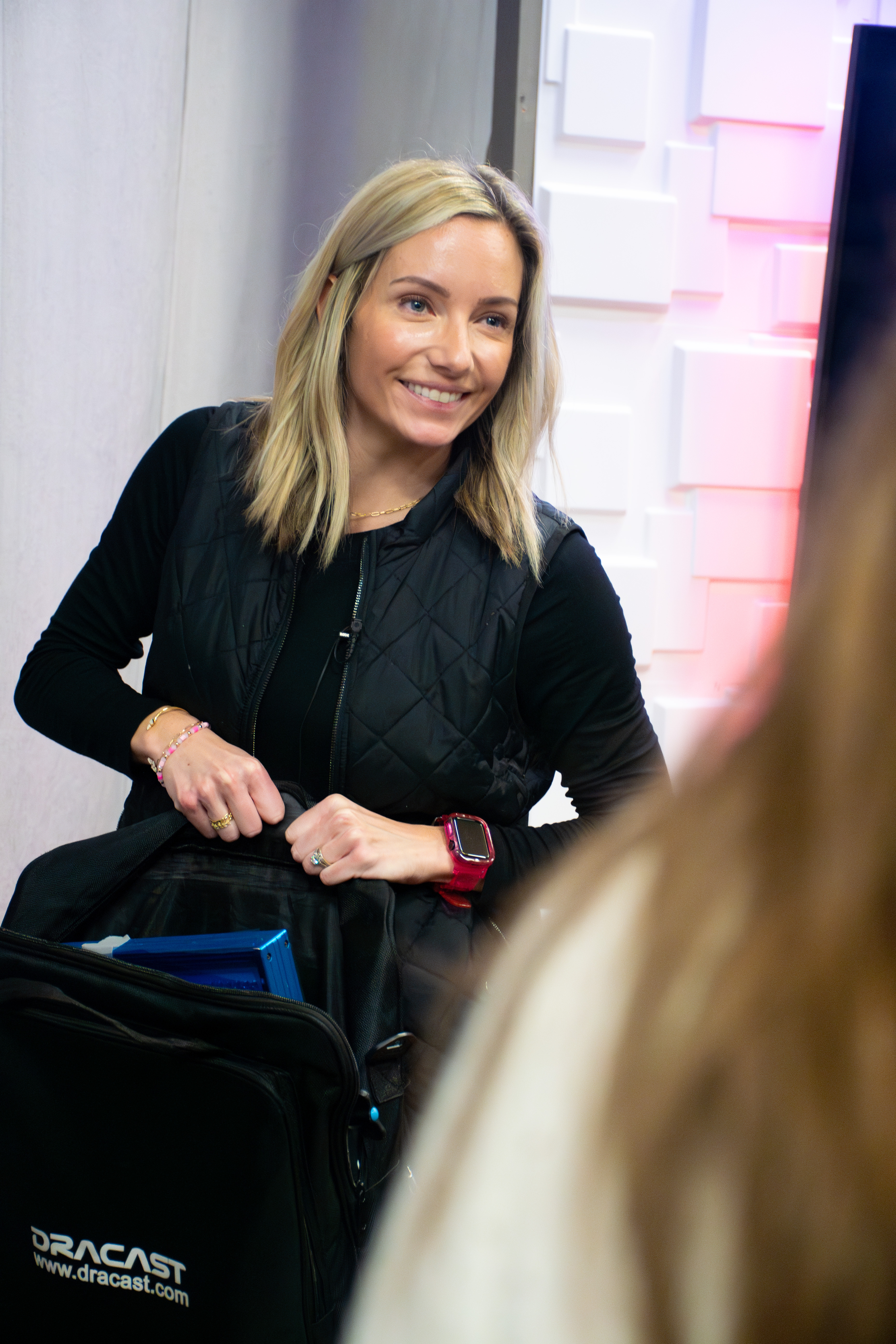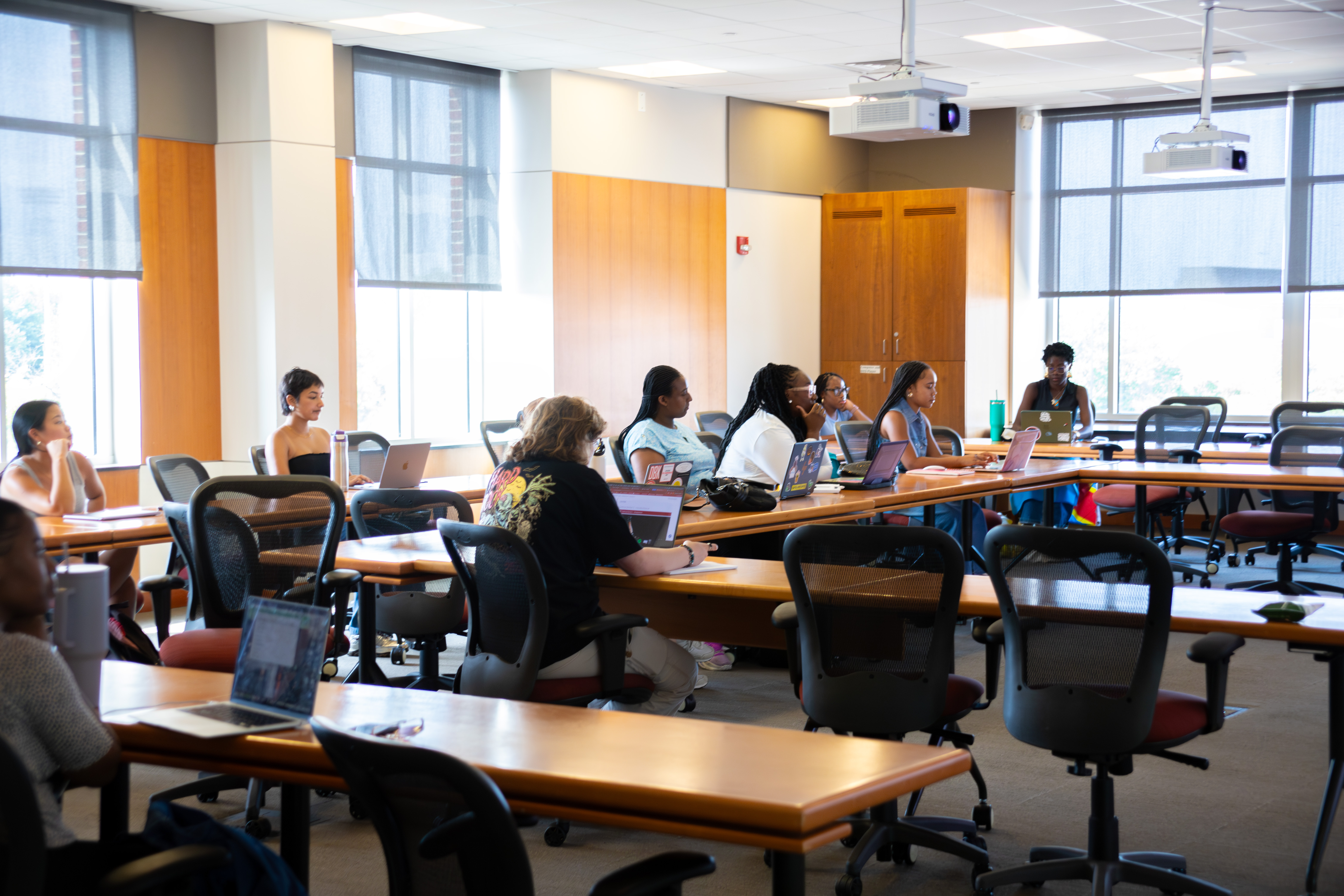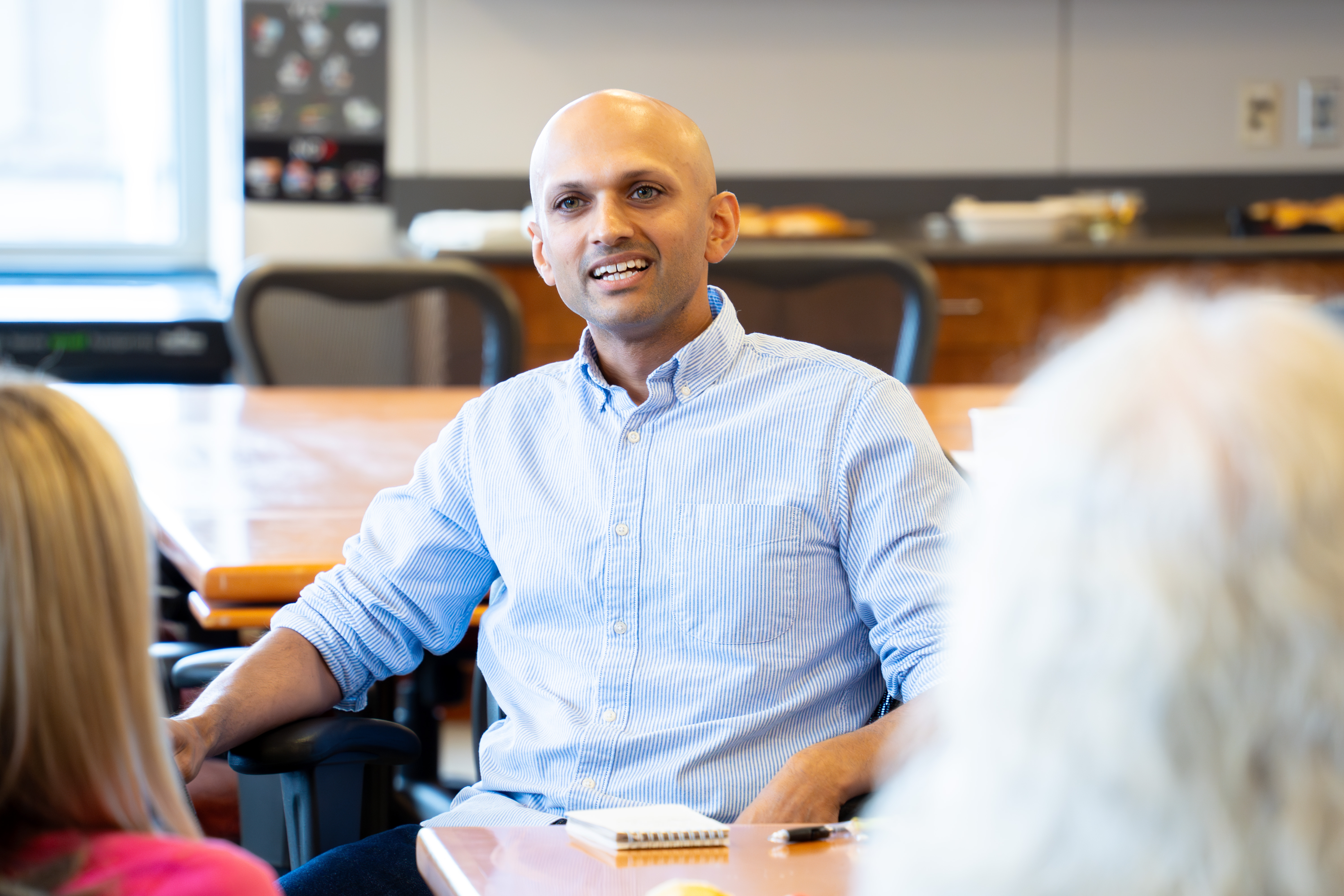The University of Maryland’s Philip Merrill College of Journalism offers a curriculum that prepares students for a multitude of career paths with media skills that are in great demand.
 The combination of course offerings is part of what makes the college so unique.
The combination of course offerings is part of what makes the college so unique.
At Merrill, students have the opportunity to practice journalism from day one with guidance from an exceptional, nationally recognized faculty of Pulitzer, Peabody and Emmy Award winners. Under their instruction, Merrill graduates go on to be hired at the top levels of their chosen fields.
The college’s exciting, innovative curriculum is designed to provide students with the hands-on experience, tools and concepts they will need to develop into top-notch professionals and dynamic storytellers.
Every semester, Merrill College’s offerings change and expand for the times. Here are five new courses being introduced in Spring 2025!
JOUR459Q: Introduction to Music Journalism
In this course taught by music journalist Marcus Moore, who writes for The New York Times, you will learn what it takes to be a well-rounded music journalist — the kind who can review records, write bios and profiles, and curate cultural events. The course has a strong focus on song and album criticism, deep listening and interview skills. Information covered includes feature writing, artist conversations, reading comprehension and deadline reporting.
Time: Thursday, 2-4:45 p.m.JOUR328B/628F: Covering Overlooked Communities
This course — taught by Deborah Berry, an award-winning national correspondent for USA Today and Merrill College Hall of Famer — will provide students with the challenge of developing a beat, cultivating sources and relationships, diving into issues and writing stories about the rich and diverse communities that border the University of Maryland. Through this hands-on course, students will produce stories and packages that tell the stories of often overlooked communities.
Maryland. Through this hands-on course, students will produce stories and packages that tell the stories of often overlooked communities.
Time: Tuesday, 5-7:45 p.m.JOUR368Q/668Q: Zooming in: Advanced Visual Storytelling
Students will develop their skills as versatile video journalists, working independently to produce in-depth visual stories on community-driven topics — with guidance from acclaimed visual journalist Alanna Delfino-Kopania. This course emphasizes creative storytelling through video, with a focus on investigative techniques and immersive, hands-on filming and editing.
Time: Monday, 10 a.m. - 12:45 p.m.JOUR458Z: Great Reporting and Great Storytellers
This course, taught by legendary broadcast producer Tom Bettag, explores long-form journalism using stories from programs like "60 Minutes." The class will emphasize the art of reporting and storytelling. It will use television stories as the material but this will not be a television production course. Whenever possible, the class will discuss these stories with the reporters themselves either in-person or via Zoom.
Time: Monday, 10:00 a.m. - 12:45 p.m. JOUR779Z: Seminar in Research Problems; Multimodal Research Methods
JOUR779Z: Seminar in Research Problems; Multimodal Research Methods
In this course, designed for makers and researchers alike, students will learn how to approach filmmaking as a research methodology while learning from award-winning filmmaker and journalist Krishnan Vasudevan. Specifically, students will learn how to conduct immersive ethnographic research, qualitative data analysis and archival research in support of a documentary/ethnographic film. The course draws upon theory and practice from the fields of anthropology, documentary, journalism and communications research. The final project is a short film (or sample scene) and research paper, both which students will develop through weekly assignments throughout the semester.
Time: Wednesday, 9-11:45 a.m.
